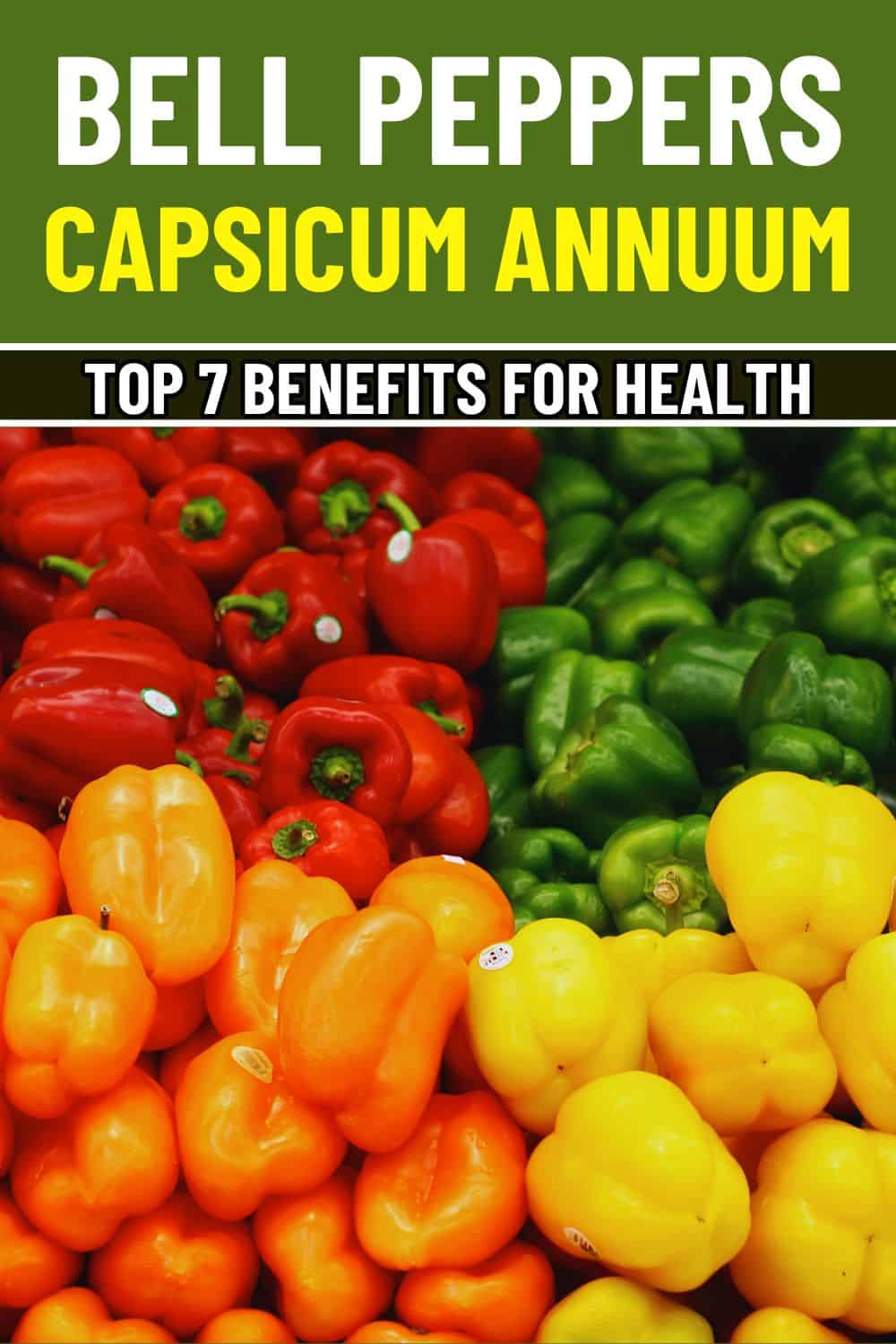Bell peppers, also known as capsicum, come in a rainbow of colors, green, red, yellow, and orange, and pack a punch when it comes to nutrition.
Whether you’re adding them to a salad, tossing them into a stir-fry, or munching on them as a snack, these vibrant vegetables can significantly improve your health.
Packed with vitamins, antioxidants, and essential nutrients, bell peppers offer a variety of health benefits that you simply can’t overlook.
#1. A Powerhouse of Vitamin C
One of the standout features of bell peppers is their high vitamin C content, especially red bell peppers.
Just 100 grams of red bell pepper provides an impressive 127.7 mg of vitamin C, which is more than 100% of the daily recommended intake.
In fact, research published by the National Institutes of Health (NIH) emphasizes the importance of vitamin C in protecting the body from infections.
Not only does it help with immunity, but it also supports collagen production, which keeps your skin elastic and youthful.

#2. Promotes Healthy Vision
Bell peppers, in particular red bell peppers, are rich in beta-carotene, which is converted to vitamin A in the body. Vitamin A is essential for good vision and maintaining the health of the cornea and retina.
In addition, bell peppers contain lutein and zeaxanthin, two antioxidants that protect your eyes from harmful UV rays and prevent age-related eye conditions like macular degeneration.
According to the American Optometric Association, lutein and zeaxanthin help filter blue light and reduce eye strain, making bell peppers a must-have food for maintaining clear, healthy vision.

#3. Heart Health Benefits
The antioxidants found in bell peppers, including flavonoids like quercetin, help combat oxidative stress and lower inflammation.
Additionally, bell peppers are a good source of potassium, which helps maintain healthy blood pressure levels.
A study in the Journal of Nutritional Biochemistry found that quercetin, a potent antioxidant in bell peppers, helps reduce oxidative stress in the body, which can lead to heart disease.

#4. Supports Digestive Health
A 100-gram serving of bell pepper provides 1.7 grams of fiber, which aids in regulating bowel movements and maintaining a healthy gut microbiome.
Moreover, fiber-rich foods like bell peppers can help prevent constipation and promote overall gut health.
The American Journal of Clinical Nutrition states that high fiber intake decreases the risk of digestive disorders like diverticulosis and irritable bowel syndrome (IBS).

#5. Fights Inflammation
Chronic inflammation is often at the root of many diseases, including arthritis, diabetes, and heart disease.
Bell peppers contain anti-inflammatory compounds like capsaicin (in smaller amounts), flavonoids, and carotenoids. These compounds help reduce inflammation in the body.
A study published in Frontiers in Pharmacology found that capsaicin, found in bell peppers, is effective in reducing inflammation markers and may be beneficial in treating inflammatory diseases.
You can support your body’s efforts to fight chronic inflammation by including bell peppers in your diet.

#6. Supports Weight Loss
Bell peppers are low in calories, about 20 calories per 100 grams, but high in fiber and water. These help you feel fuller for longer, curb your appetite, and reduce overall calorie intake.
Research published in the Journal of the American Dietetic Association found that increasing fiber intake is linked to reduced body fat and improved weight management.
Bell peppers are also low in fat, a guilt-free addition to any weight loss plan. You can enjoy them as a snack, in salads, or as part of a low-calorie meal.

#7. Improves Skin Health
Bell peppers are packed with vitamin C and beta-carotene, which are essential for healthy skin.
Vitamin C helps fight free radicals and supports collagen production, boosting skin elasticity and preventing wrinkles.
Furthermore, beta-carotene, a powerful antioxidant, protects skin from UV damage.
According to the American Academy of Dermatology, these antioxidants reduce skin damage from the sun and pollution, helping to keep your skin youthful and glowing.

How to Use Bell Peppers in Your Diet
- Fresh in salads: Add sliced bell peppers to salads for a crunchy, colorful boost.
- Stuffed peppers: Fill bell peppers with grains, beans, or lean protein, and bake them for a filling meal.
- Grilled or roasted: Grill or roast bell peppers with olive oil and your favorite seasonings for a flavorful side dish.
- Smoothies: Blend a small piece of bell pepper into your smoothies for added nutrients and a mild, sweet taste.
- As snacks: Slice bell peppers into strips and pair them with hummus or your favorite dip for a healthy snack.

Cautions and Precautions
Some individuals may experience allergic reactions to bell peppers, such as skin rashes or digestive issues.
Moreover, bell peppers contain small amounts of oxalates, which can contribute to kidney stone formation if consumed in excess.
If you have digestive conditions like IBS, bell peppers, particularly raw ones, might cause discomfort. Cooking them can help reduce the risk of irritation.
Disclaimer
This article is for informational purposes only and should not be taken as medical advice.
Always consult with your healthcare provider before making any significant dietary changes, especially if you have underlying health conditions or are on medication.







